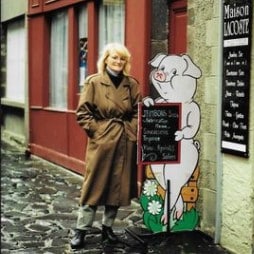
Home » The Bubble: Mentors & Newcomers

This month, I am going to discuss something which has been a frequent topic of conversation for the past several years—mentoring.
Mentoring has become the number one recommendation on Facebook help and advice groups, where answers are provided to inexperienced people who ask questions about breeding and puppy raising. One of the first things people tell them is that they need a mentor. This may be true, but the majority have no idea where to turn or how to find one. I decided to look at it from the other side of the equation. We talk about newcomers being discouraged; we hear about newcomers not wanting to learn—but what is it like for the newcomers looking in?
First of all, newcomers coming into the dog show world are not cookie cutter people and will have varying levels of interest and commitment. Do they really need a “mentor” or just people they can call upon for advice? I have talked to people over the years who have had their problem solved in a single phone call—these were people who had not obtained a puppy from me. There are also people who have a serious interest in showing their new puppy, but for some reason, cannot get any help from the breeder.
I think back to when I started out in the dog show/breeding world. There was no Internet, no instant online communication; we either talked to people in person or on the telephone. Some of us sat down and wrote letters by hand or using a typewriter. Those who wanted to learn and those willing to share their knowledge were able to connect. Somehow, we learned more about each other in those days than we do now. Each of those letters that we wrote and received were read over and over.
In Britain there were two weekly dog newspapers, Our Dogs and Dog World, and in America there were monthly all-breed magazines. Popular Dogs, Dog World (American publisher) and Kennel Gazette are three that I remember. These contained news about current events and dog shows as well as advertisements—and importantly, there were educational features written by qualified people. It was all there to be read, studied, and learned from—BUT—not everyone did. It is no different today. Those who bemoan the fact that newcomers do not want to learn are painting all newcomers with a very wide brush. Those who want to—will, whether anyone helps them or not!
Getting back to mentors and mentoring. Personally, I don’t believe in having one sole mentor anyway. I think the more people that a newcomer talks to, and the broader the range of information they are given in their early days, provides a much better and more well-rounded education. I know from my own self that there were important breeders who were willing to talk to a very enthusiastic and chatty teenager, for which I am grateful. However, I was young and impressionable and in awe of my elders, and I assumed they must be speaking with knowledge and veracity—and believed everything they said! When I was a little older and wiser, I learned that was not always the case. I was warned by one breeder never to breed to a certain bloodline because I would get the typical heads. It was true that there were some with undesirable heads in that line, but they also had some other very excellent qualities. Many years later, I noticed that if that bloodline was mixed with another specific line, they produced some of the most beautiful heads I had yet seen.
The other issue with following only one mentor is whether he or she is controlling or flexible. We have all known people who have followed their mentors so implicitly that they will not bend—and respond to contradictory information with “That is what I was taught!” even in the face of medical evidence. This can also predispose the mentee to developing kennel blindness. It is also stressful for any breeder, active or retired, to have responsibility for teaching someone they do not know, and I can understand why. In this day and age of finger pointing and demands to know “Who is the breeder” (if/when any dog falls through the cracks), who wants to be responsible for errors made, even unintentionally, by anyone else? Breeders have already been held responsible for the actions of their puppy buyers, resulting in the increasing number of breeders insisting on co-ownerships.
From the newcomer’s perspective, they want to feel welcome and supported, not beaten over the head with demanding questions and a litany of rules that they MUST follow. They need advice on training, grooming, and diet and do not need to be hounded for details on whether or not their puppy came from a responsible breeder. That no longer matters—the owner needs advice on raising a happy, healthy puppy. If the puppy is show quality, all well and good; if not, the owner can pursue some other activity. They will benefit from the advice they have received when looking for their next puppy, hopefully a show prospect.
New exhibitors who are doing well with their puppy will soon start thinking about the possibility of breeding her in the future and, by this time, hopefully, will have built up relationships with other people in their breed. Sadly, this is not always the case—competitive jealousy is an ugly thing. My advice at that point is to make friends with people in another breed! Learn as much as you can about “your” breed and, if possible, visit shows in other parts of the country. You will then make connections of your own and can make friends with people in other places. Never be afraid to ask questions. People who have an attitude problem and do not want to help are usually not worth listening to anyway! In the end, whether a person has a mentor or not, we are all responsible for our own learning, both practical and through study.
